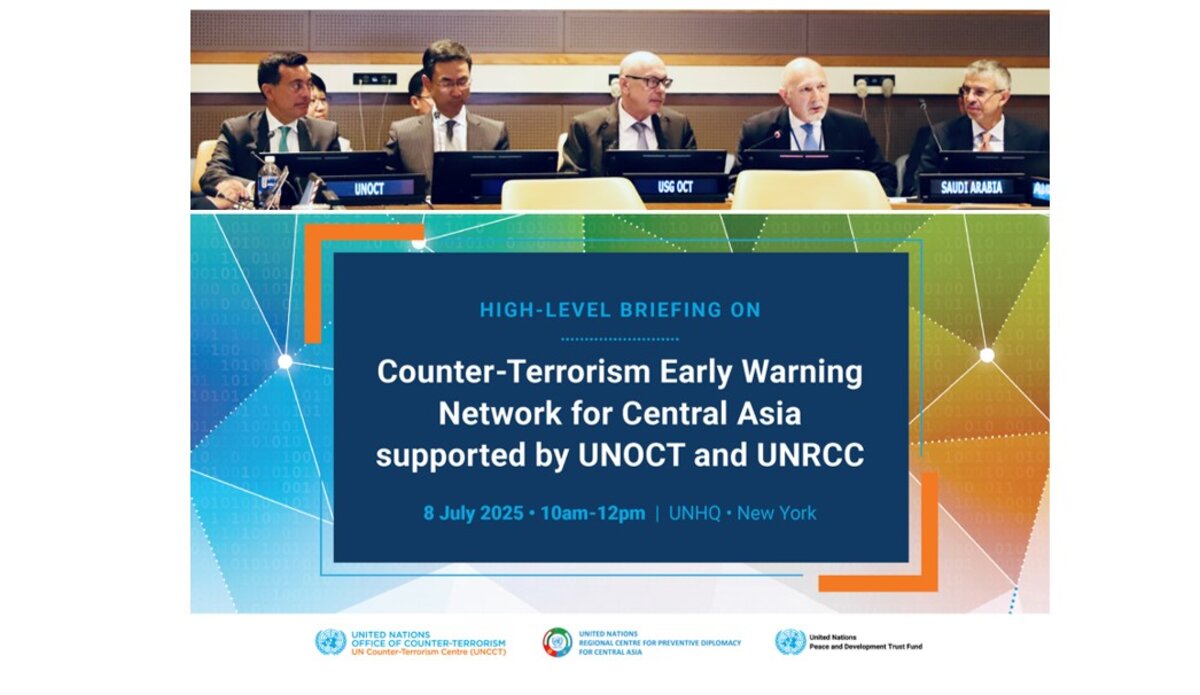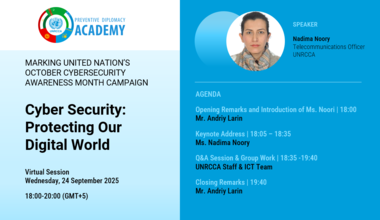UNRCCA CO-ORGANIZES HIGH-LEVEL BRIEFING ON COUNTER-TERRORISM EARLY WARNING NETWORK FOR CENTRAL ASIA
UNHQ, New York
On 8 July 2025, UNRCCA and the United Nations Office of Counter-Terrorism (UNOCT) organized the High-level Briefing on Counter-Terrorism Early Warning Network for Central Asia at the United Nations Headquarters in New York. The aim of the High-level Briefing was to inform Member States about the scope, progress and strategic relevance of the Early Warning Network and to discuss political, technical and financial support for the current and future activities under this initiative. Two research papers on online propaganda and impact of the developments in Afghanistan on Central Asia were also presented at the meeting.
In his opening remarks, Kaha Imnadze, SRSG for Central Asia, stressed “the current global and regional developments clearly demonstrate that the challenges related to the prevention of violent extremism and countering terrorism persist and, in some areas, are intensifying”. In particular, the situation in the Middle East continues to create conditions conducive to the resurgence and increased activity of radical movements and terrorist groups”.
The Permanent Representative of Central Asian and other Member States, present at the briefing, expressed strong support to the initiative and underlined the importance of information exchange and capacity building activities for state officials and civil society representatives as important endeavors to address security related challenges in the region.
The Counter-Terrorism Early Warning Network for Central Asia was launched in 2022 as one of flagship initiatives under the Phase IV of the joint UNRCCA and UNOCT project on the implementation of the UN Global Counter-Terrorism Strategy in Central Asia. During the last years significant number of activities were conducted with involvement of state officials, non-government organizations and academia of the Central Asian states as well as UN entities and regional organizations.
 UN
UN





